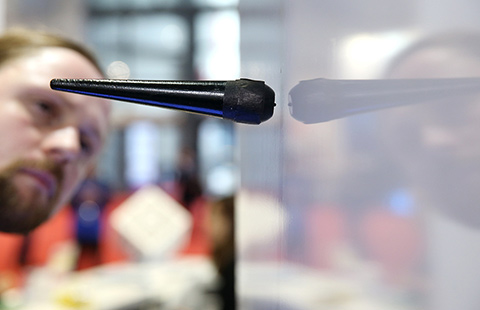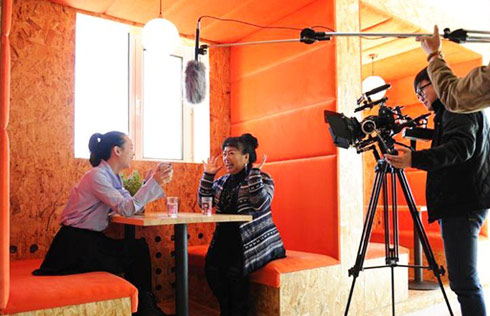Ordering online makes lunch easier, but not safer
 |
|
A meal box and a smartphone is seen in this March 13, 2016 photo taken in Hefei, Anhui province. [Photo / VCG] |
BEIJING - Gone are the days when people throng out of office blocks for a quick bite at lunch. In Chinese cities today, busy office workers have their meals delivered after a few simple touches on a smartphone. The process takes a few minutes, and who can resist a good online discount?
The marriage of a fledgling mobile Internet industry with the Chinese love for food has created an explosion in online catering businesses over the past two years. Hundreds of thousands of dishes are now a swipe away on the three dominant delivery platforms - waimai.meituan, waimai.baidu, and ele.me, or the "Big Three."
But do the mouth-watering pictures on the phone match the sanitary conditions we expect? Recent investigations by Xinhua and other media outlets reveal worrisome findings.
Unlicensed kitchens
In theory, online catering platforms require restaurants to post pictures of their business license and health certificates online where customers place their order. While most comply, some flounder and post blurred or fake images.
A store that franchises American fast-food chain Subway on ele.me was found to have an expired license; in another case the localization photo of a nondescript restaurant registered as Mr. Bread led Xinhua reporters to well-known spicy food chain Wushan Roasted Fish.
Li Jiang, an official with the Beijing food and drug safety watchdog, said an expired license is as good as not having one, and those who give fraudulent information will be severely punished.
There are around 58,000 eateries in Beijing offering food delivery services on the three dominant platforms, plus a minor one named Daojia, Li said. District food safety watchdogs conduct regular raids to ensure everyone plays by the rules.
While the authorities have not yet received any reports of major food safety cases, there are unverified comments left on these platforms complaining about diarrhea and worse.
Other media outlets have exposed appalling scenes. A City Times reporter found that flowing sewage, thick oil stains, leftovers, and scattered chop sticks were a common scene at a popular hotpot restaurant in the southwestern city of Kunming.
The restaurant had been open for only five months and had positive online ratings, listing ahead of 77 percent of its competitors.
Few customers bother to check restaurant licenses before ordering.
"To be honest, I only pay attention to ratings and other customers' comments," said Ma Juan, a Beijing office worker. "If a restaurant has a poor sanitary record then its rating will not be high, right?"























